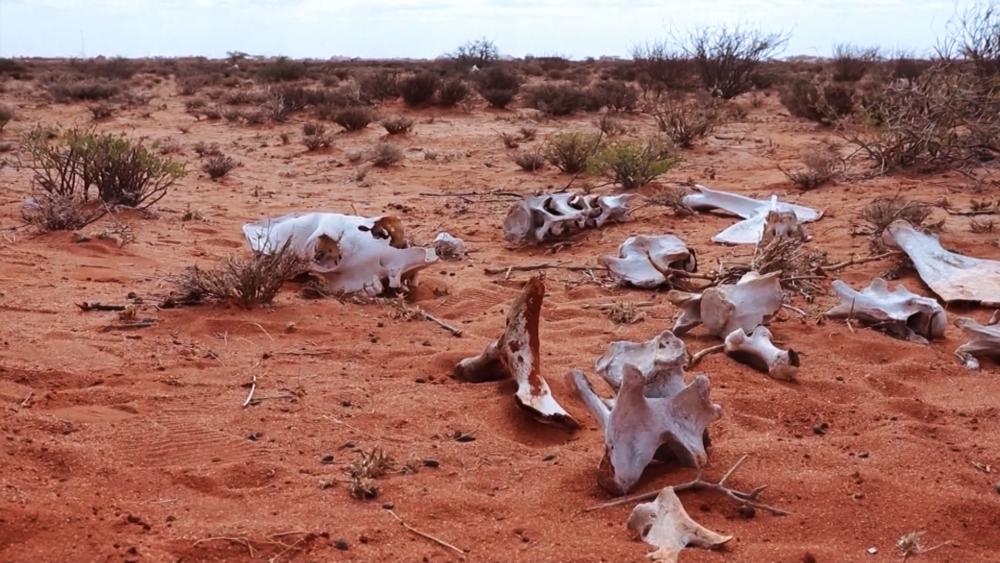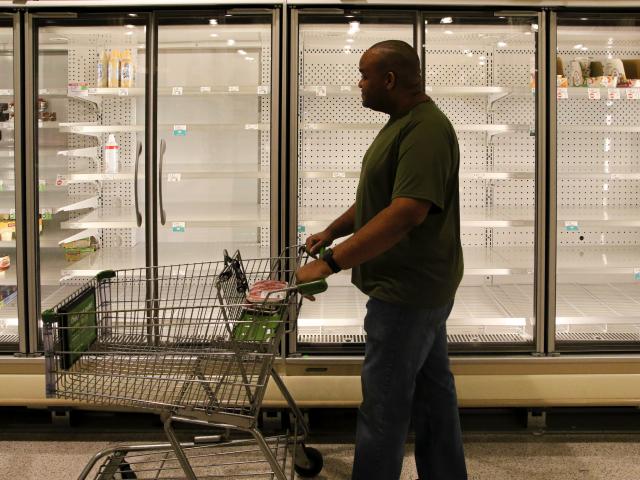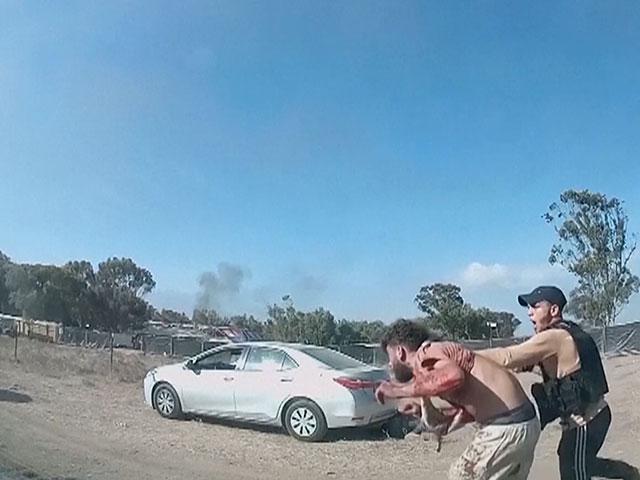NAIROBI, KENYA – Unprecedented famine conditions not seen in the last 40 years are gripping parts of Africa. Back-to-back droughts, COVID-19, and effects from the Ukraine war have created dire conditions for the eastern region.
Fadumo Abdi Aliyow has just buried her two sons here on the outskirts of Mogadishu, Somalia. She lays a thorny branch on their graves to protect their bodies from wild animals. Both died from starvation.
"I wanted to die before them so they could bury me, but both of them died before me," Aliyow said.
Somalia and its neighbors in the Horn of Africa, including Ethiopia and Kenya, are facing unprecedented drought conditions.
"We've had four failed rains," said Alex Marianelli with the World Food Program. "The drought that we are currently seeing in the Horn of Africa is the worst drought in over 40 years."
On average, one person dies every 48 seconds from hunger in the Horn of Africa.
"Because of the drought, many water sources have dried up," Wafaa Saeed Abdelatef, a UNICEF representative warned. "Many wells have also dried up."
With crops failing, the United Nations says some 22 million people are at risk of starvation, many of them farmers who only grow enough food to feed their own families.
"People will be forced to flee to look for food," warned Rein Paulsen with the U.N.'s Food and Agriculture Organization. "People will have to try and find a way to survive and obviously this entails a very perilous journeys for people who are already marginalized."
Many in the region who rely on livestock for livelihood have seen massive numbers of their animals wiped out.
"For example, in northern Kenya, we've lost about 1.5 million herds of livestock," Joseph Kamara with World Vision Kenya, told CBN News. "Similarly, in southern Ethiopia, we've lost about two million. In Somalia, we've even stopped counting."
In Somalia alone, around eight million people, or half the population, are experiencing crisis hunger levels. One-in-three children face chronic malnutrition.
"I have been shocked to my core these past few days by the level of pain and suffering we see so many Somalis enduring. Famine is at the door," said Martin Griffiths, the United Nations' humanitarian chief.
Anne Kasombo oversees CBN's offices in Kenya. In partnership with Operation Blessing, they've been distributing food and other aid supplies to some of the hardest-hit regions of her country.
***Please sign up for CBN Newsletters and download the CBN News app to ensure you keep receiving the latest news from a distinctly Christian perspective.***
"It's been quite devastating in some communities, especially in the arid areas, even when there's rain, food is hard to come by because they're not able to grow their food," Kasombo said.
Four consecutive droughts and African economies still reeling from the coronavirus pandemic have created these dire conditions.
"As if that was not enough, the situation has been aggravated by the current conflict in Europe between Russia and Ukraine," Kamara said.
Before the war, Somalia imported 90 percent of its wheat from Russia and Ukraine while Ethiopia imported 42 percent. Kenya, which also imports oil, iron, steel, and fertilizers from Russia and Ukraine, imports 44 percent of its wheat from both countries.
All that has come to a screeching halt since the war started. The result: skyrocketing prices for practically everything. "It has really affected us, especially on food prices," Richard, a resident of Nairobi, told CBN News. "It has also affected the cost of fuel."
"When the fuel prices go up, the production cost is high, so everything is affected," Allis, another resident of Nairobi, said.
A new survey just out found that most of Kenya are forced to dip into their savings or take out loans to meet the rising cost of living.
"It's been a buildup: From COVID, to inflation, to drought, to war in Ukraine," Kasombo said. "So just before one situation gets better, another one crops up so the impact has been quite deep and long. It's devastating. It's been tough on families."
In late August, the first ship carrying grain from Ukraine docked on the Horn of Africa offloading some 23,000 tons of wheat.
"That's enough wheat to feed 1.5 million people for about a month," Marianelli of WFP said.
Food experts say that's a drop in the bucket considering the immediate crisis facing millions across the Horn of Africa.
Did you know?
God is everywhere—even in the news. That’s why we view every news story through the lens of faith. We are committed to delivering quality independent Christian journalism you can trust. But it takes a lot of hard work, time, and money to do what we do. Help us continue to be a voice for truth in the media by supporting CBN News for as little as $1.












 Support CBN News
Support CBN News









